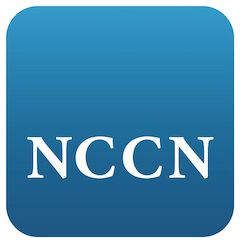- Center on Health Equity & Access
- Clinical
- Health Care Cost
- Health Care Delivery
- Insurance
- Policy
- Technology
- Value-Based Care
New CMS Models Target Transformation to Address Need for Health Equity
"CMS cannot do this alone. We have to do this in partnership. So really thinking about providers and beneficiaries and how we do this together," Ellen Lukens, MPH, Center for Medicare and Medicaid Innovation, explained.

In a presentation at the National Comprehensive Cancer Network Oncology Policy Summit, Ellen Lukens, MPH, deputy director of the Center for Medicare and Medicaid Innovation (CMMI), shed light on the vision for health care transformation. She discussed oncology care models and Accountable Care Reach, with an emphasis on the diversity in these primary care models, which are designed to cater to distinct needs, clinical conditions, or provider situations.
According to the Lukens, with the new leadership of Elizabeth Fowler, PhD, JD, as deputy administrator and director of the CMS Innovation Center, came a reevaluation of their decade-long efforts. Fowler addressed questions that needed answers, and as a result, the pillars of transformation were established.
“‘What are we really moving toward in terms of the future?’ I think the feeling was, after discussions with many experts, providers, beneficiaries, that we're really driving toward a health system that achieves equitable outcomes through high quality, affordable person-centered care,” Lukens explained.
The 5 Pillars of Transformation
- Driving Accountable Care: role of a primary care physician in managing cost and quality
- Advancing Health Equity: strategy to address health equity and social determinants of health
- Supporting Innovation: empowering providers with necessary tools and capabilities
- Addressing Affordability: alleviating concerns regarding out-of-pocket costs
- Partnering to Achieve System Transformation: acknowledging the need for collaborative efforts
Unpacking the Health Equity Pillar
Concerted efforts by CMS to integrate health equity into every facet of model development is a vital aspect of their approach. Strategies include tailoring models to address health equity and social determinants of health, employing additional payments for underserved communities, and evaluating models' impact on health equity through comprehensive data collection and analysis.
"Participation in our models and the beneficiaries that benefited from CMMI models did not actually reflect the overall Medicare population,” Lukens said. “They skewed wealthier and whiter than the general Medicare population."
Accountable Health Communities Model
Key features and objectives of the Accountable Health Communities (AHC) model consist of screening, referral, and navigation processes in order to identify unmet needs.
Specifically, the model involves systematic screening to identify unmet health-related social needs among Medicare and Medicaid beneficiaries, focusing on 5 core social needs: housing instability, food insecurity, transportation needs, utility needs, and interpersonal violence.
"Thirty-five percent of Medicare and Medicaid beneficiaries had an unmet need, and it was related to one of these 5 core social needs," she explained.
Enhancing Oncology Model
The recent addition of the Enhancing Oncology Model (EOM) focuses on oncology physician group practices, with an aim to provide care for select cancer types and promote shared decision-making, patient-reported outcome measures, and health equity plans. By incentivizing care for underserved communities, collecting beneficiary-level socio-demographic data, and encouraging the development of health equity plans, the EOM has the potential to provide a comprehensive and tailored approach to cancer care.
“The structure here is that all of the practices that are in EOM are at risk. So, that means they are responsible for the total cost of care of the beneficiaries. It's also a narrower set of cancer types than we had included in the Oncology Care Model,” Lukens said. “And the rationale for that was really that after we looked, the Oncology Care Model did not save money for Medicare and it looked like there were some promising results, both in terms of quality and costs, on a select group of cancers.”
Future Directions and Strategies
The CMS trajectory involves a multifaceted approach, encompassing health-related social needs screening, payment innovations to promote equitable care, partnership with states, and sharing resources and data with providers. By embracing these strategies, the aim is not only to improve clinical outcomes but also to enhance the overall beneficiary experience, aligning with their statutory mandate.
"CMS cannot do this alone,” she said. “We have to do this in partnership. So really thinking about providers and beneficiaries and how we do this together."
CMS is actively engaging with the health care landscape, steering toward a future where equitable outcomes and patient-centric care are at the core of a transformed health system. By leveraging innovation, collaboration, and a deeper understanding of social determinants, CMS is poised to redefine health care for the benefit of all, according to the presentation.
"By embracing these strategies, CMS seeks to not only improve clinical outcomes but also enhance the overall beneficiary experience, aligning with their statutory mandate,” Lukens stated.
Reference
Lukens E. The role of value models in systems transformation to address health-related social needs. Presented at: The National Comprehensive Care Network Oncology Policy Summit; September 12, 2023; Washington DC. Accessed September 12, 2023. https://web.cvent.com/event/5a5f0ae9-3ddc-4669-9385-4a329f9bee7b/websitePage:387fba1d-ece3-4ab2-99eb-d0d008530105
